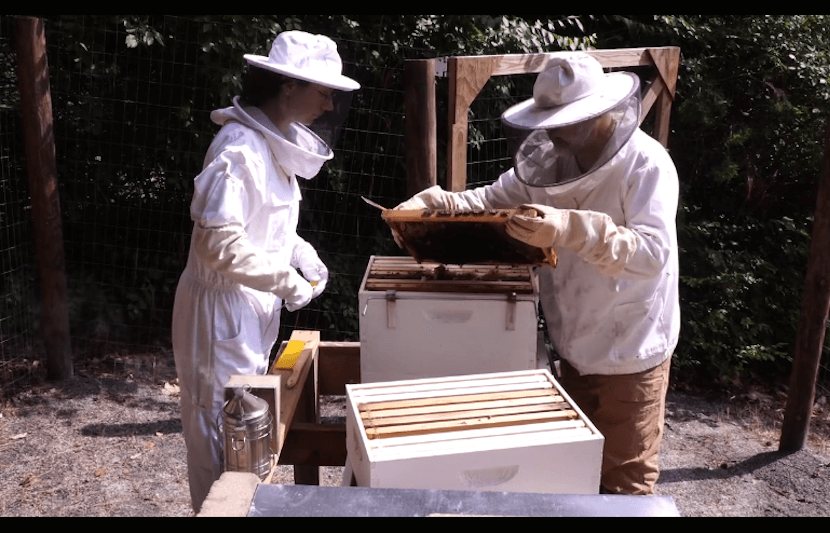In an effort to combat declining honeybee population, University of Richmond in Virginia has recently installed two new honeybee hives on their campus. These hives will be used for sustainability and educational purposes.
“We rely on honeybees to pollinate our food,” Rob Andrejewski, director of sustainability at the University of Richmond, told TUN. “These creatures add an estimated $15 billion to our agricultural economy. Some crops, such as almonds, depend almost entirely on honeybees. Others, like strawberries, see a boost in crop yield from honeybee pollination.”
While some people may have heard of the honeybee crisis, known as the Colony Collapse Disorder, many may not have a full understanding of the magnitude of the problem. “Beekeepers have been losing 30-40 percent of their hives each year,” said Andrejewski. What makes the crisis difficult is that scientists aren’t able to pinpoint one cause for such grave losses. The Colony Collapse Disorder is caused by a mixture of disease, pesticides, parasites, and poor nutrition.
Students and professors at the university are working together on their campus beehives to help find a solution. Students helped design the enclosure, and will use the honeybee hives to learn about the importance of pollinators like honeybees in the upcoming semester. Students will also engage in research as well as work on building a pollinator garden.
“University of Richmond students are here for only four years, but their education stays with them forever,” said Andrejewski. “Incorporating honeybees into their education through curricular and co-curricular experiences, allows them to develop solutions on a local level to a challenge that has global implications.”
Given the severity of the crisis, it is reassuring to hear about the university’s efforts to find a solution. Andrejewski has high hopes for the impact of the university’s honeybee hives. “My hope is that the hives bring awarenepexess to the importance of pollinators to human well-being, understanding that honeybees are in decline, and a sense of efficacy they can contribute solutions to this problem,” Andrejewski said. “I also hope that the bees impart a sense of wonder. They are amazing creatures with complex communication patterns and a natural intelligence deserving of our respect and admiration.”
[divider]
RELATED: Campus Bee Buzz: New Community Apiary at North Carolina State University



